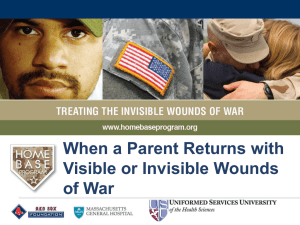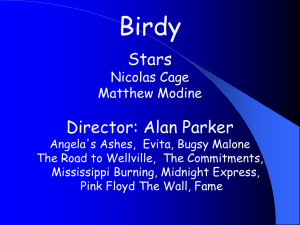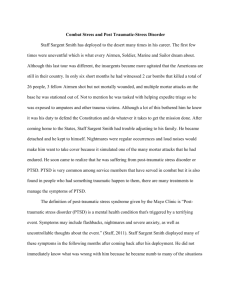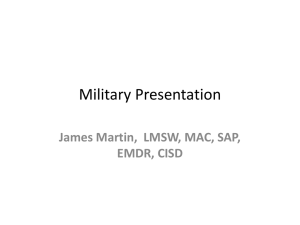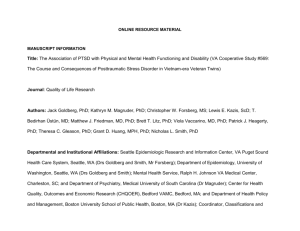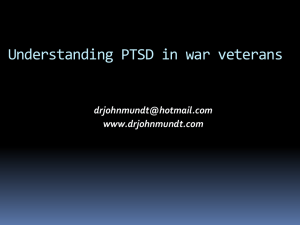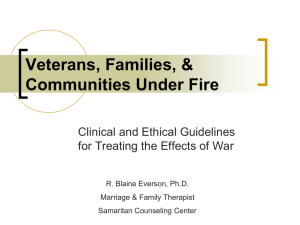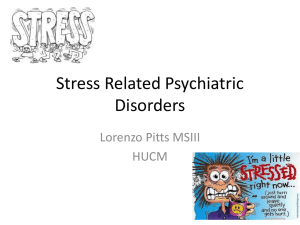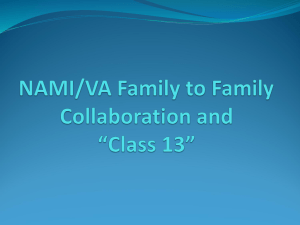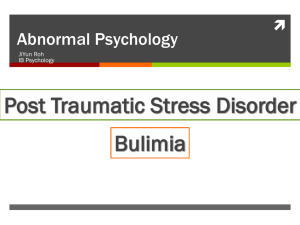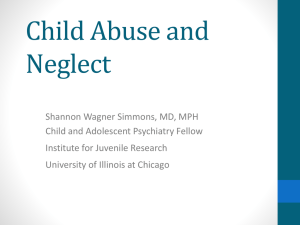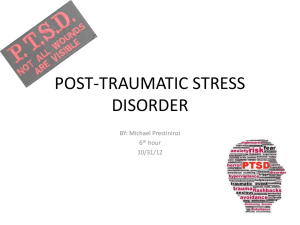Post Traumatic Stress Disorder Historical Perspective
advertisement
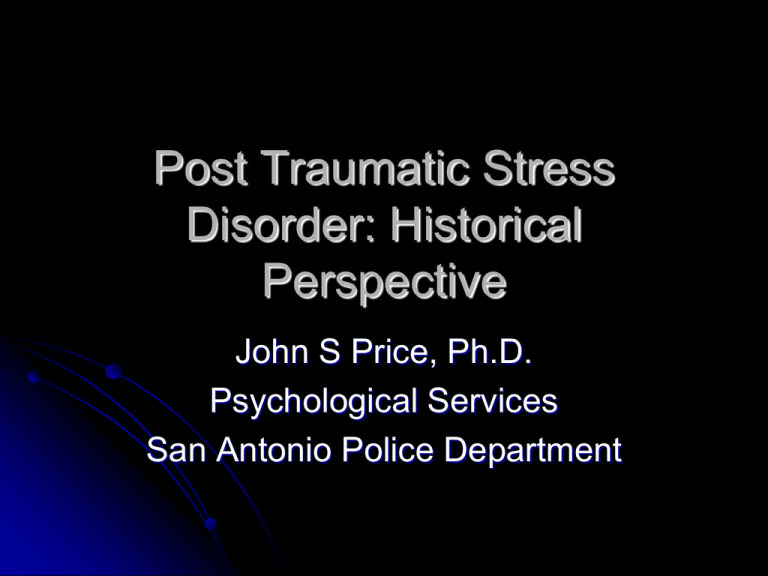
Post Traumatic Stress Disorder: Historical Perspective John S Price, Ph.D. Psychological Services San Antonio Police Department Combat Related Stress Injuries Old problem but a new name Greek and Roman References 17th Century through US Civil War Nostalgia Soldier’ Heart Combat Related Stress Injuries World War I: Shell Shock World War II: Combat Exhaustion or Battle Fatigue 1973 Israelis: Battle Shock Combat Stress Reaction Combat Related Stress Injuries DSM I: Hysteria DSM II: Hysteria DSM III: Acute Stress Disorder Post Traumatic Stress Disorder DSM IV: Acute Stress Disorder Post Traumatic Stress Disorder PTSD ***A psychiatric disorder that can occur following the experience/witnessing of life threatening events such as: Military Combat Natural Disasters Terrorist Incidents Serious Accidents Violent Personal Assaults: Such as Rape PTSD Can Include Nightmares Flashbacks Difficulty Sleeping Feeling Detached or Estranged Can Impair Daily Life PTSD Occurs in Conjunction with Other Disorders Such As: Depression Substance Abuse Problems with Cognition Physical or Mental Health Issues Can Impair Ability to Function in Social or Family Life PTSD Estimated 7.8 % will experience PTSD at some point in their lives Women (10.4%) twice as likely as men (5%) About 3.6% of US Adults aged 18-54 (5.2 million) have PTSD during the course of a given year 60.7% of men and 51.2% of women reported at least one traumatic event PTSD Events Most Associated with PTSD Women Rape Sexual Molestation Physical Attack Threatened with a Weapon Childhood Physical Abuse Men Rape Combat Exposure Childhood Neglect Childhood Physical Abuse PTSD In a 2005 VA study of 168,528 veterans, 20% were diagnosed with psychological disorders, including 1,641 with PTSD The Marines and Army were nearly 4x more likely to report PTSD than Navy or Air Force because of their greater exposure to combat situations Enlisted men were twice as likely as officers to report PTSD Combat Related Stress Injuries World War I Shell Shock Nerveshock Nerveshock Crisis September 21, 1916 The German Association for Psychiatry convened a special “War Congress” Combat Related Stress Injuries After briefly discussing the evidence the “War Congress”, settled the debate by voting that persistent distress or functional impairment following exposure to a traumatic event could only in an individual with Hysteria Combat Related Stress injuries 1980 DSM III PTSD replaces Hysteria Normalization model: PTSD is seen as a normal reaction to an abnormal situation Combat Related Stress injuries Stress Injuries as physical damage to the brain Implications of returning to a Medical Model of stress injuries Lori and I have been looking forward to attending the Pick-up Party; unfortunately we are having problems with car. We have a friend who also joined The Flock John S Price Combat Related Stress Injuries Questions
